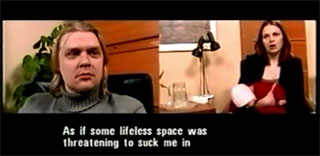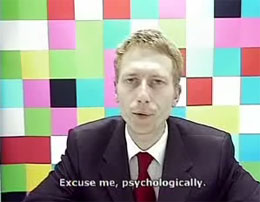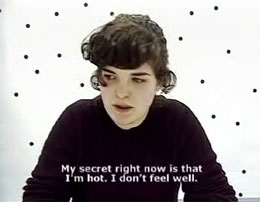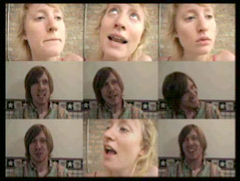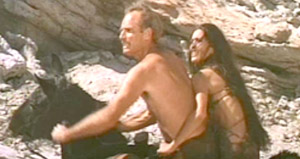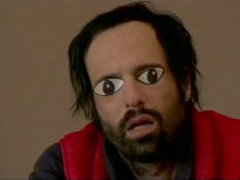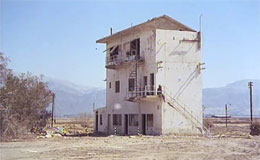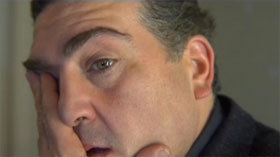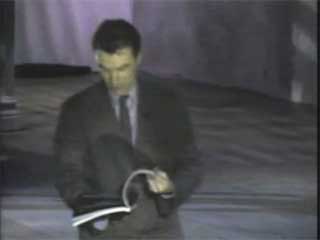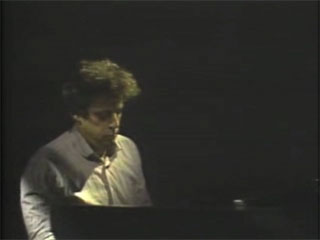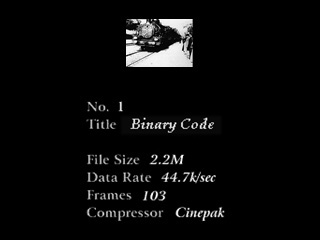
Binary Code (1994-98, 2MB, 52 secs)
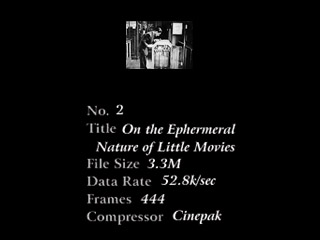
On the Ephemeral Nature of Little Movies (1994-98, 3MB, 1:05 min)
I mentioned the Manovich Little Movies in the post I did the
other week on Eryk Salvaggio’s ‘Unfinished Mpeg Haiku’.
In the course of writing that I went to Manovich’s site to look at them
& was surprised to find that their page was in some disarray
and the movies themselves had been removed.
Nor could I find them either in the version archived on the Rhizome Artbase.
It seems a shame for them not to be available -they’re historical
(and in many ways amazingly presecient) documents at the least,
although I find them – especially the last one – gripping and touching too.
Then I remembered the wonderful Wayback Machine and I found them
there, all snug and safe and sound.
We’ll post them here in twos in the next week or so,
in the order in which they appeared in Manovich’s
original presentation of them.
Although the image linking to it has been removed from the site
Manovich’s very interesting statement remains.
(I guess if that goes too you’ll still be able to Wayback it)
